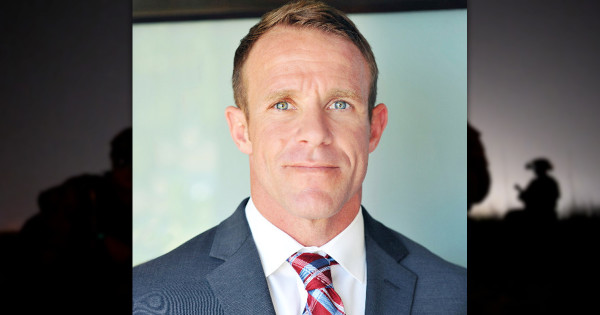

The civilian lawyer for the Navy SEAL accused of war crimes violations during the Battle of Mosul in 2017 said Thursday he doesn’t doubt his client will have to fight to clear his name at court-martial.
In an interview following SEAL Chief Edward “Eddie” Gallagher’s Article 32 hearing — which wrapped up on Thursday — Attorney Philip Stackhouse told Task & Purpose “there’s no doubt it’s going to court-martial.” The retired former Marine judge advocate, who is representing Gallagher as his civilian defense counsel alongside Attorney Colby Vokey, is confident the SEAL will ultimately be vindicated at trial.
Though Stackhouse believes a trial is in the cards, it’s not necessarily a foregone conclusion: The hearing officer of the Article 32 now has a couple of weeks to consider the evidence and write a report for the convening authority at Naval Special Warfare Group One, Capt. Matthew Rosenbloom, who will ultimately decide whether or not it is referred to court-martial.
Gallagher, a 19-year veteran of the Navy, has been charged with four counts of violating military law, the most serious of which is premeditated murder. On or about May 3, 2017, according to the charge sheet, Gallagher allegedly murdered a wounded ISIS fighter by stabbing him in the neck and body with a knife.
The alleged stabbing occurred soon after the fighter — estimated by the Naval Criminal Investigative Service to be about 15 years old — was turned over to the SEALs by the Iraqi military, which had captured him after he was wounded in a coalition air strike. Prosecutors allege Gallagher killed the fighter while other SEALs were providing him medical treatment at their compound.
Stackhouse maintains his client was an aggressive combat leader, which one NCIS witness described as a “hard ass.” Stackhouse argued at the hearing that a small group of SEALs in the platoon had conspired to complain about Gallagher to the chain of command, since they were “angry” about his leadership style and wanted to get him out of special operations.
Additionally, Stackhouse told Task & Purpose there was no evidence of stab wounds on fighter, arguing SEAL medics’ inserting a cricothyrotomy into his neck to open an airway and his existing wounds may have been the more likely cause of death.
“The sense of betrayal he feels is crushing,” Stackhouse told Task & Purpose of his client.
Gallagher has also been charged with firing indiscriminately on civilians, drug possession, and obstruction of justice. A second SEAL, Lt. Jacob Portier, has been charged with dereliction of duty in connection with the Gallagher case, according to Carl Prine at Navy Times.
The Navy has not yet made public the charge sheet for Portier. The service did release the charge sheet for Gallagher at his Article 32 hearing on Wednesday.
“This is not a case about Chief Gallagher killing an ISIS prisoner. This is a case about Chief Gallagher killing a prisoner whose wounds were being treated by his fellow SEALs,” Navy Cmdr. Chris Czaplak, the lead prosecutor on the case, said in the Thursday hearing, adding that his “actions put American lives at risk and handed ISIS propaganda manna from heaven.”
Prosecutors have recommended a general court martial for Gallagher. He faces life imprisonment if convicted.
